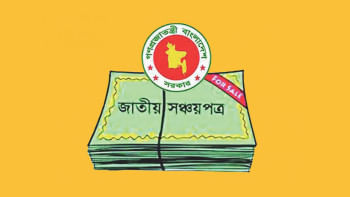Sri Lankans flee crisis in mass brain drain
Shamla Yoosoof, an investment researcher from Colombo, left Sri Lanka with her three-year-old son and a jam-packed suitcase, swapping economic chaos at home for a new start in Dubai.
She flew out in June to join her husband who had secured a job as a sales and marketing director there weeks before - one of tens of thousands of Sri Lankan professionals escaping the country's worst economic crisis in seven decades.
Although the exact number of migrants was unavailable, both preliminary data and business leaders suggested the scale of the brain drain was serious enough to delay any economic recovery.
Yoosoof, for one, did not know when - or if - they would ever be back.
"It took a long time to convince my husband (to leave Sri Lanka) because he was someone who believed in the country and wanted to stay," said the 30-year-old.
But by March, she said the crisis - which saw fuel shortages spiral into economic meltdown alongside political protests that ousted the president - had made daily life too hard.
"We realised that if we do not jump ship (soon) it was going to be difficult for us (to leave the country)." From Tunisia to Haiti to Pakistan, spiralling inflation is driving millions into poverty worldwide, sparking protests and mass unrest, with even rich countries feeling the squeeze.
Since March, Sri Lankans have faced severe shortages of fuel and cooking gas due to fast-dwindling foreign currency reserves. Medicine and food essentials such as milk powder ran short and unrest swelled against the powers that be.
Fuel was only available for essential services such as healthcare and farming for most of July. Food prices soared, with year-on-year food inflation at more than 90 per cent in July, and consumer price inflation at 60.8 per cent, year on year.
On top of the daily grind, migrants said they had lost faith in government and feared that rising nationalism would favour the feckless at the polls, hastening the middle-class exodus.
Hence the rush to a better life by many of the island's most skilled professionals - medics, software engineers, scientists - creating a worrying skills gap for the 22 million left behind. "There is an emerging trend of departure of skilled migrant workers," said Dr. Bilesha Weeraratne, Head of Migration and Urbanization Policy Research at the Institute of Policy Studies (IPS).
The first six months of 2020 and 2021 recorded 40,581 and 30,797 departures respectively, but the first six months of 2022 had registered about 113,140 departures, she said, citing government data that is not publicly available.
The immigration office would not confirm the numbers despite repeated requests - but long queues outside passport offices are now a common sight.
In the first five months of 2022, Sri Lanka has issued 288,645 passports compared with 91,331 in the same period last year, according to government data.
In a bid to retain talent, IT companies that run support services for big foreign firms - be it the London Stock Exchange, Qantas Airways or Boeing - began pegging local salaries to foreign currencies.
Such outsourced services, mostly in tech, are one of the island's biggest foreign exchange earners. But the currency shift has not much helped, industry leaders say.
Sanjiva Weerawarana, chief executive officer of WSO2, a Colombo-based software solutions firm with 850 full-time employees, said the company had lost about 10 per cent of its workforce this year as staff chose to leave for work or study.
"When we asked (employees) who wants to go, more than half of them (said they want to migrate). We will only know the real impact in another six months," he said.

 For all latest news, follow The Daily Star's Google News channel.
For all latest news, follow The Daily Star's Google News channel. 



Comments